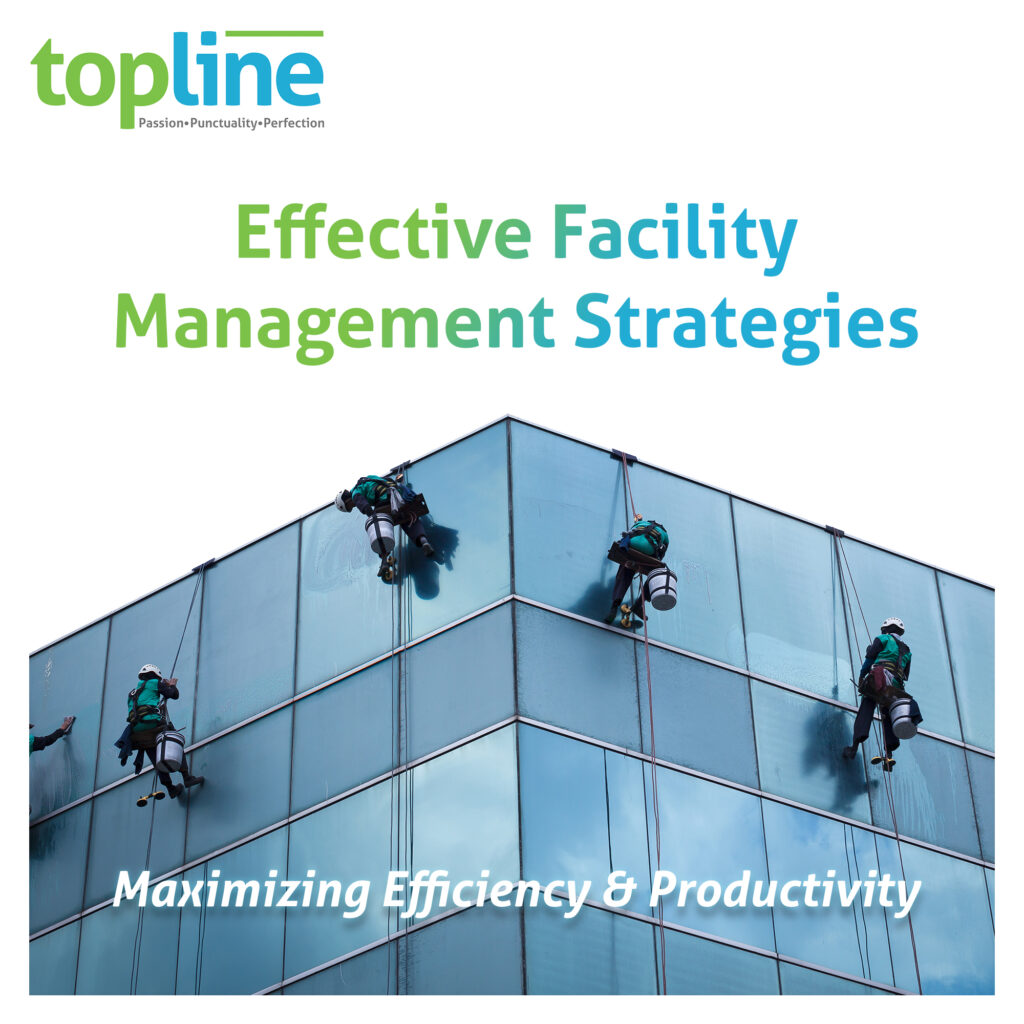Effective facility Management Strategies

Facility management is a critical aspect of any organization, as it directly impacts the productivity, efficiency, and overall success of the business. Effective facility management strategies can help ensure that facilities are well-maintained, safe, and efficient, ultimately leading to increased employee satisfaction and reduced costs.
In this blog, we will explore the key strategies that can help you achieve a smooth and efficient facility management operation.
- Develop a Comprehensive Maintenance Plan
A 360 Degree Plan is essential for ensuring the smooth operation of facilities. This includes :
- Civil Maintenance
- Beautification
- Soft Services
- Hard Services
- Building Management System
- Utilities Management System
By implementing a comprehensive maintenance plan, you can:
- Reduce downtime and increase productivity
- Prevent equipment failures and reduce maintenance costs
- Ensure a hygienic , safe and healthy work environment
- Optimize Energy Efficiency
Energy efficiency is a critical aspect of facility management, as it can help reduce energy consumption and costs. Some effective strategies for optimizing energy efficiency include:
- Implementing energy-efficient lighting and HVAC systems
- Reducing water consumption through efficient plumbing systems
- Encouraging recycling and waste reduction programs
- Promoting sustainable practices among employees and clients
- Enhance Communication and Collaboration
Effective communication and collaboration are crucial for successful facility management. This includes:
- Establishing clear communication channels with employees, clients, and stakeholders
- Conducting regular feedback sessions to identify areas for improvement
- Collaborating with maintenance teams to ensure timely resolution of issues
- Encouraging open communication and transparency
- Invest in Employee Training and Development
Investing in employee training and development is essential for improving facility management services. This includes:
- Providing regular training sessions on facility management best practices
- Encouraging continuous learning and professional development
- Recognizing and rewarding employees for their contributions and achievements
- Foster a culture of innovation and continuous improvement
- Monitor and Analyse Performance Metrics
Monitoring and analysing performance metrics is critical for identifying areas for improvement and optimizing facility management services. This includes:
- Tracking key performance indicators (KPIs) such as response times, customer satisfaction, and maintenance costs
- Analysing data to identify trends and areas for improvement
- Adjusting strategies accordingly to optimize performance
- Sharing performance metrics with clients to demonstrate transparency and accountability
- Stay Up-to-Date with Industry Trends and Best Practices
Staying up-to-date with industry trends and best practices is essential for delivering cutting-edge facility management services. This includes:
- Attending industry conferences and seminars to stay informed about the latest trends and best practices
- Participating in online forums and discussion groups to network with industry professionals
- Subscribing to industry publications and newsletters to stay informed about the latest developments
- Encouraging continuous learning and professional development among employees
- Develop a Business Continuity , Redundancy & Crisis Management Plan
Developing a crisis management plan is essential for ensuring business continuity in the event of an emergency. This includes:
- Developing a comprehensive crisis management plan that outlines procedures for responding to emergencies
- Conducting regular drills and training sessions to ensure employees are prepared
- Establishing clear communication channels with clients and stakeholders
- Collaborating with emergency services to ensure a swift response
- Foster a Culture of Sustainability & Diversity
Fostering a culture of sustainability is essential for reducing the environmental impact of facilities. This includes:
- Implementing sustainable practices such as recycling and energy efficiency
- Encouraging employees to adopt sustainable practices
- Inclusive work Culture which includes work life balance , Gender Equality & Diversity.
- Promoting sustainable practices among clients and stakeholders
- Developing a comprehensive sustainability plan that outlines goals and strategies for reducing environmental impact
By implementing these effective facility management strategies, you can ensure a smooth and efficient operation that benefits both your organization and the environment.
OR
You can focus on your Core Business , While we take care of all the above needs , which will make your business more productive & give your business a 100% Boost.
Click below to contact us & one of our People will get in touch with you to serve you better.
Get In Touch
Write to us to experience our services.
